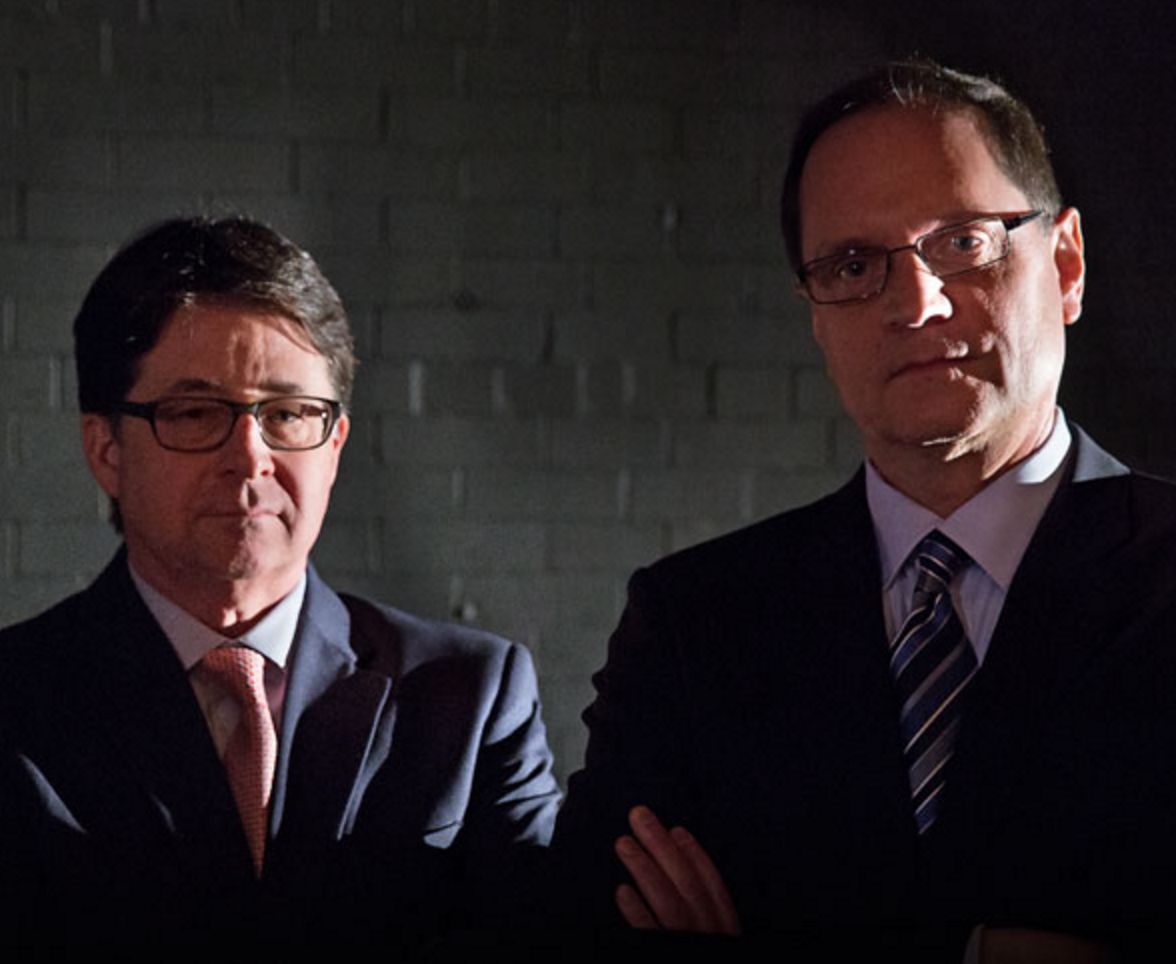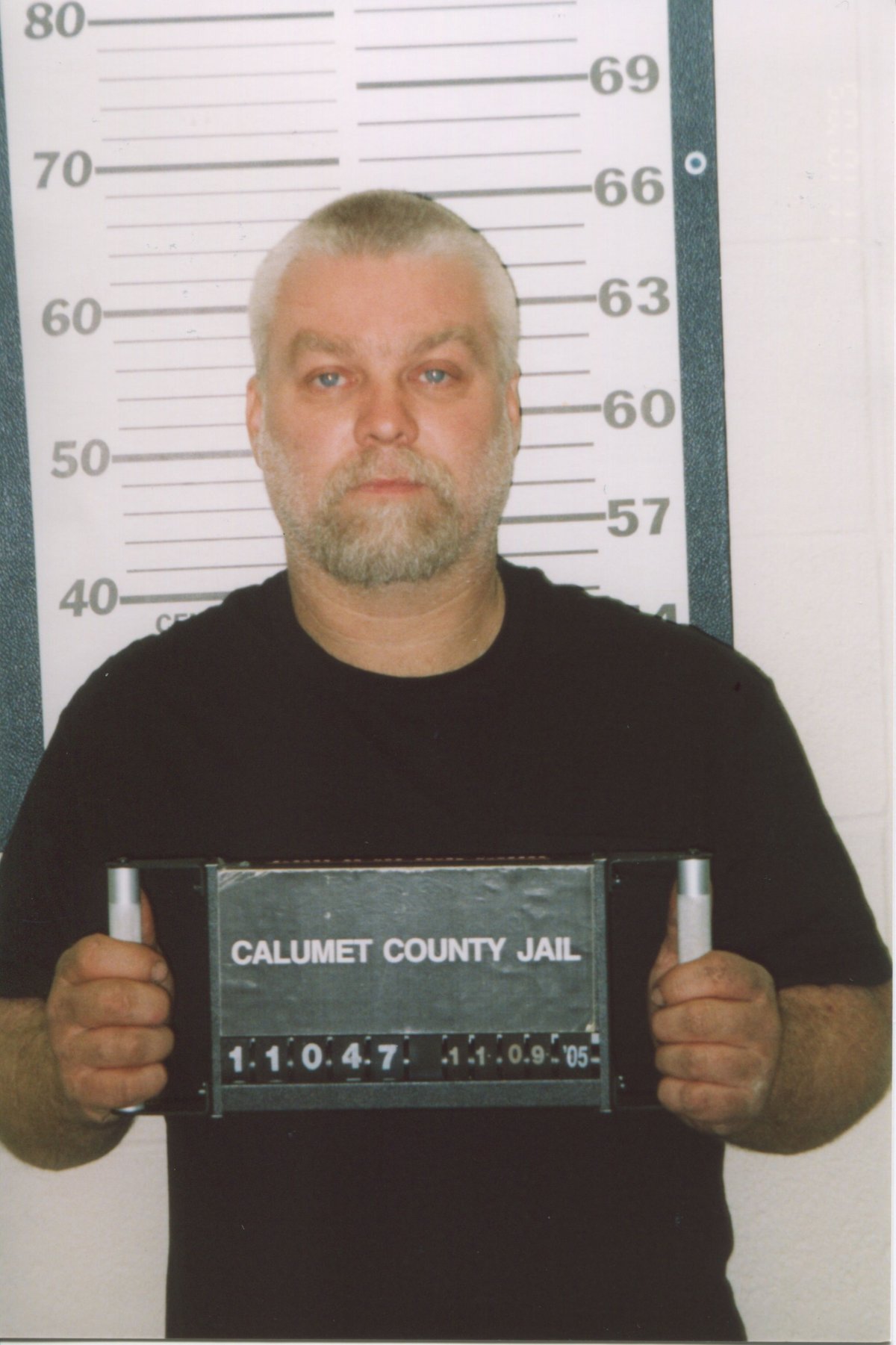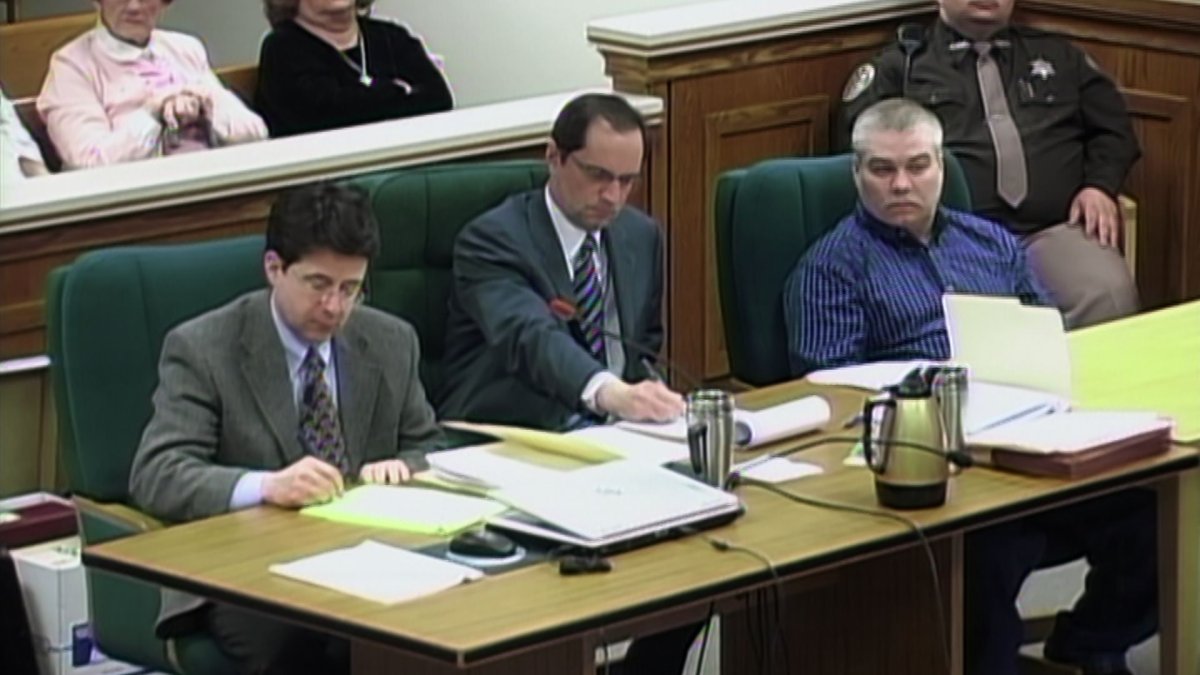
Making a Murderer lawyers Dean Strang and Jerry Buting may no longer be representing Steven Avery in his high-profile murder case, but they tell Newsweek they are happy to have their defense in the original 2007 trial deemed ineffective if it helps Avery go free on appeal.
The attorneys were unsuccessful in proving that Avery, along with his nephew Brendan Dassey, was innocent of the 2005 murder of photographer Teresa Halbach. The Netflix docuseries presented considerable doubt about Avery's guilt and his attorneys posited that he was framed by the county of Manitowoc, Wisconsin, for filing a $36 million lawsuit against them for a previous 18-year wrongful imprisonment for rape.
Since Murderer became an overnight hit in December 2015, Avery has hired high-powered defense attorney Kathleen Zellner to represent him in a new appeal. In March, Zellner told Newsweek she hoped to have Avery's conviction overturned because he had ineffective counsel. The lawyer claimed Strang and Buting failed to present in court cellphone records that proved Halbach left Avery's property in Manitowoc County, Wisconsin, alive on Halloween 2005. (Zellner is also working on uncovering new evidence to compel a new trial for Avery; she argues that advanced forensic testing unavailable at the time of the original trial will prove his innocence.)
In an interview with Newsweek Monday, Strang and Buting said that Zellner's dogged enthusiasm for the case was welcomed, even if their earlier defense comes under fire. "Good lawyers don't take it personally," Buting tells Newsweek. "We're human beings, [law] is a human endeavor and as long as it is, even the best can make mistakes."
In the ten months since Making a Murderer turned them into household names—and the subject of many internet memes—Strang and Buting have begun a speaking tour, A Conversation on Justice, which is currently in the U.K. and recently traveled through the United States.
Newsweek spoke to the attorneys about their tour, their reaction to Avery attacking their defense in a recent letter and their thoughts on Brendan Dassey having his conviction overturned in August.
Newsweek : Is there a lot of pressure in doing this tour? Presumably people really want black-and-white answers regarding the Avery case?
Strang: I feel a great deal of pressure in that actually. We are posing questions which at least I have no satisfactory answer to offer. Many of the questions are, if not unanswerable, at least beyond the capacity of any one human being to offer an adequate answer.
Does it feel like people are coming to the shows as a grassroots effort to help Avery?
Buting: I do feel like it's a grassroots effort, but it's not just about Steven Avery or Brendan Dassey, although there's a large amount of interest in that too. The other questions are, "How often does this happen? Could this happen here? What can we do about it?" They want to feel empowered.
Strang: In the U.K. we've had a number of people asking would this docuseries be as popular if Steven Avery had been black? That's a tough question put to us more frequently here than in the United States.

Why do you think that is?
Strang: It might be the perception of the race problem in the United States. Maybe it's easier to talk about when you're talking about some other place. It's a perceptive and good question. As much as we'd like to see improvement in Steven Avery's lot, and in Brendan Dassey's, our efforts and the engaged audience focus is on something broader.
Do you get a lot of people coming to you with their theories about what happened at the shows?
Buting: Not so much at the show itself, they're more interested in what we think, and who we think did it. I get a lot more theories presented to me on social media…
Do you look on Reddit? It is quite a rabbithole for theories…
Buting: It is. Some of them are farfetched, but some of them are not so farfetched, and some of them aren't so far off what we have thought.
What's interesting, it's not just that people are talking about this on social media, but they have so much access to so much information—transcripts, trial exhibits, some police reports—and they're really spending time finding them. There are some things that people have found that I was surprised at.
Would Avery's case be easier to defend today with the internet and social media? It's hard to keep things quiet… police shootings and other incidences are easily captured and shared now.
Buting: You'd have a much better chance today. Even in Wisconsin, which is still pretty rigid in their belief about the prosecution's case, I do think the whole idea of police behaving this way… people are more receptive to this now, there's been a swing of the pendulum [with] cellphone videos of shootings and struggles. I think a jury would be more sensitized than they were nine years ago.
Strang: My concern would be that many places in the U.S. are insular in their local attitudes or culture. You may have the world crowdsourcing your case but it will always be decided by 12 people from the locale. I could imagine there being a defiance locally to the pressure of the outside world. I don't know how that would [affect it].
In July, InTouch Weekly published a letter from Steven Avery blaming you for botching his defense. What do you make of this anger he seems to have?
Buting: He's still in prison, it's frustrating. He's been in prison for more than half of his life. Wrongly imprisoned, in his view and my view. Inmates talk to each other and often attorneys get blamed for them being there because we are [seen as] part of the system.
Strang: I think it's likely more frustration than anger. Inside the grill of a prison gate, I suspect lawyers look pretty undifferentiated and look very much like pillars of a system that caged you—and in his case, for a shockingly long time. I think it has to be understood as an expression of some emotion that's quite understandable.

Would you have liked the opportunity to represent him at the appeal stage?
Strang: [I have] mixed feelings about that. On one level, you want to see it through and have another crack at the issues we lost at trial court. On another level, we were exhausted, emotionally, from the case after a year-and-a-half.
Also, it's a case where we as trial counsel could have missed something that could have been significant. We really did want fresh eyes to look at all of the issues, including whether we possibly rendered ineffective assistance of counsel.
Buting: That is the process that happens in Wisconsin. If you want to raise that issue [of ineffective counsel] you're supposed to do it right away in the first appeal, and you can't do that against yourself.
Avery's new defense attorney Kathleen Zellner told Newsweek she felt you missed crucial evidence that Halbach's cellphone records show she left his property alive. What do you say to that?
Buting: We looked at a lot of stuff, we looked at cellphone tower information… it's somewhat more advanced than it was then too. What you can do with that information has changed over the last ten years.
Strang: The concern I would have is that cell tower information can tell you something about where the cellphone is, but it can't tell you anything about where the owner of the cellphone is.
On a personal and professional level, are you concerned about having your work attacked if Zellner claims ineffective assistance of counsel?
Buting: Every lawyer in their career is going to face that. Some get very defensive and take it personally… they shouldn't. We don't.
Strang: Nobody likes unfair criticism—I don't. Until I can look you in the face and say, "I'm perfect," I don't have any right to bristle at fair criticism. So far all I've heard is potentially fair criticisms.
Zellner has said she has uncovered new evidence and has a suspect in mind that really killed Halbach. What do you think she might have?
Buting: She hasn't shared it with us, she doesn't need to, and probably shouldn't at this point. She has one big advantage that we didn't have: there's thousands of people looking at this and digging up new information. Before she was hired but after the documentary came out, we were getting hundreds and hundreds of emails—from scientists about forensic work that could be done, some of them about tips on other suspects—and we turned all that over to her. It's hard to say what she has, but I'm optimistic she has something because so many people have been helping.
Are you both personally convinced of Avery's innocence?
Strang: I've always suspected Steven Avery was innocent… I've recognized that I don't have the right to make a claim of absolute innocence because I wasn't there. I am very confident in offering my opinion that the evidence didn't even come close to proving him guilty beyond a reasonable doubt. And I suspect him innocent.
Buting: I never bought the state's case, there's way too many holes in the physical evidence and they never presented a coherent motive for him to have done this. The Steven Avery that I knew certainly didn't fit the mould of the way they tried to portray him. So I hope that at some point they will be able to find and prove who the perpetrator is, so he is in essence proven innocent. Until then, the best you can say is that he wasn't proven [guilty] beyond a reasonable doubt.
Do you have any other suspects in mind?
Buting: Oh yeah, but I can't say…
People we may have seen in the documentary?
Buting: Maybe. There are some others you didn't see that we weren't allowed to present [in court]. Quite a few didn't testify. Some of it we were allowed to argue that [the prosecution] failed to investigate to show their bias and focus just on [Avery].
One thing Zellner says the police didn't investigate was two calls to a man recently arrested for sex crimes two days before her death. Did you look into that?
Buting: Yes, but the thing about a case at that stage… victims' families, friends and associates, once a defendant has been charged with killing them, they don't cooperate with the defense. They don't have to cooperate and they usually don't. It's so important that police do that investigation and look at the people [in their life]... particularly a woman, look at the men in her life that are close to her.
So there's only so much we can do if the police don't do it—at least back then. Now it's different because a lot of people have come forward. A lot of people in the general public, even in that [Manitowoc] area, have their doubts about his guilt.
Brendan Dassey's conviction was overturned in August… are you hopeful this could be a sign of things to come with Avery's case? (Editor's note: Prosecutors are appealing the decision to overturn his conviction.)
Strang: First we have to see whether the [Wisconsin] federal court of appeals sustains the ruling giving him a new trial and we won't know that for nine to 15 months. Beyond that, I think it's unknowable what effect that might have on Steven's prospects.
Making a Murderer is now part of a cultural context of both Steven Avery and Brendan Dassey's case. The ruling in Brendan Dassey's case was thoughtful, thorough and careful, exquisite judicial work… that becomes part of the cultural context of Steven's case, too. What impact it will have? You'd have to be a seer to know.
I think Kathleen Zellner is right that the fact that Brendan's confession was not offered as evidence against Steven does not mean his confession wasn't used against Steven.
The judge that overturned Dassey's conviction said he had "intelligence deficits." Do you think the same could be said for Avery—did he perhaps not have the intelligence to pull off this murder?
Strang: I've never given Steven Avery an IQ test, let alone try to gauge his emotional intelligence… I don't think I'd be qualified to do that. I think he's a concrete thinker, I think he's a fairly slow processor of information, and I think he's acquired a fair amount of wisdom through difficult life experiences. It would be unfair to characterize Steven Avery glibly, whether his intellectual prowess or emotional intelligence. His life experience has given him a fair amount of insight into the way the world works.
Buting: There was nothing in his past that convinced me he was a murderer and that he would be capable of that. If you couple that with the fact things were going well for him: he was about to receive a $400,000 check from the state [for his previous wrongful imprisonment], over and above the $36 million lawsuit against the county, which was going well, and he had a girlfriend who was about to be released from jail in a couple of weeks. He just never had a motive do something like this. That should give people pause.
Making a Murderer directors Laura Ricciardi and Moira Demos are currently filming new episodes. Even though you're no longer involved with the case, will you be appearing?
Buting: We have already been interviewed by them, they did approach us, but whether we end up being in it, that's their decision. It will probably bend somewhat towards what new developments there might be. If there are new court appearances, that might become such a focus that whatever they talked to us about is not necessary.
Dean Strang and Jerry Buting's "A Conversation on Justice" tour continues through 2017. For more information click here.
Uncommon Knowledge
Newsweek is committed to challenging conventional wisdom and finding connections in the search for common ground.
Newsweek is committed to challenging conventional wisdom and finding connections in the search for common ground.
About the writer
To read how Newsweek uses AI as a newsroom tool, Click here.








